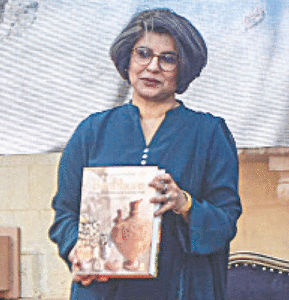HYDERABAD: Pakistan Peoples Party (PPP) leader Syed Naveed Qamar has termed the Special Investment Facilitation Council (SIFC) a nebulous idea which was meant for long-term investment and said that consistency was required in policies for the agriculture sector to lessen dependence on food imports.
He was speaking at a press conference after attending a convention of Sindh Chamber of Agriculture (SCA) office bearers at chamber’s offices on Sunday. SCA President Miran Mohammad Shah, Vice President Nabi Bux Sathio, General Secretary Zahid Bhurgari, Ghani Talpur and others were present.
Qamar said the share of agriculture in GDP had plummeted over the years due to policy-related issues and Pakistan’s farm sector used to have an edge in the world, but it was no longer there due to short-term policies.
He said increased productivity means increase in exports and economic growth, and be it the World Bank, IMF or Army, everyone realises there was no other way out.
He regretted that there was no food security minister in the present caretaker government and wondered whether agricultural growth was not on the agenda of the government.
He described SIFC a nebulous idea and said it was an organisation meant for long term investment. He said farm sector was part of SIFC, but its results would be available when it was materialised.
He mentioned that without promoting agriculture sector, poverty could not be alleviated.
“It was only in Benazir Bhutto’s government when cotton was given attention and since then, other than genetically modified seed, efforts were not seen to sign agreements with companies for cotton seed,” he said, adding: “Caretaker government didn’t include the food security minister which shows it has shifted its focus from agriculture which is a dangerous thing.”
“There has to be a government which is focused on these issues. It appears the government has relegated it to SIFC to look after [agriculture]. SIFC is to bring investment from foreign countries. We do need investment, but this doesn’t come in a day or in three-month time. You will have to offer a long-term plan. It [SIFC] is a nebulous idea. We don’t know where lands are located and who or which government will offer them,” he continued.
He asked whether provincial governments were involved and what commitments they would make.
“Who is going to ensure water supplies which is a scarce resource? We fear whether water of existing command will be diverted to those lands to create an upheaval sort of thing? So, all these things are to be seen and till the plan is implemented, the government can’t absolve itself of its responsibility,” he said.
Water management
He said Pakistan needed water management as failing the matter would multiply the scarcity.
“When there is no water for the farm sector there would be no food and money to import it. So where are we heading to?” he asked.
Underscoring water management, he said, that doesn’t mean building larger dams for which no water was available. He said such management was all about conserving water in fields through drip irrigation.
In more recent times, he said, the government even tried to reverse parity in Nepra which PPP blocked.
Crops pricing
About crop’s rates, he said, consistency was needed so that adequate price was transferred to farmers.
“But whenever farmers’ monetary interests are discussed, people start talking about price hike that is never discussed when money goes to someone else,” he said, adding: “Despite having larger representation in assemblies, agriculture remains weakest in terms of ability whenever it comes to putting pressure. It is easier to frame policies against them [farmers].”
He said cotton crop price should be linked with New York-based trading, otherwise artificial pricing would not work. Cotton crop had fared badly over the years which needed some support system for few years to encourage cotton cultivation, he maintained.
Paddy crop, he said, was an exportable commodity and this year despite husking mills’ deduction growers got better prices when compared with last year.
“A crop’s rate is determined by market and whenever government intervenes, it makes things difficult and only the wheat crop’s rate is fixed by the government to have food security,” he said.
Agriculture oriented manifestos & tax
He said it was time for elections and political parties were drafting manifestos and they needed to make them farmers friendly.
“Farmers should vote against parties that don’t reflect farmer-friendly policies in their manifestos. Farmers will be voting for themselves irrespective of their party affiliations,” he remarked.
It was time that parties should understand that farmers were a powerful lobby.
“We don’t have powerful organisations like FPCCI and APTMA,” he said, explaining: “Still, smaller organisations like SCA can be more powerful, and if farmers’ bodies are united nationally to highlight issues, then everyone would have to pay attention.”
He said Pakistan could get rid of IMF-oriented loans if the agriculture sector shows growth.
He said agriculture tax was very much there and its collection was an issue, but the government needed to rationalise that.
“There has to be a tax rate that people start paying instead of levying an exorbitant rate that reflects the government’s non seriousness,” he concluded.
Published in Dawn, October 30th, 2023












































Dear visitor, the comments section is undergoing an overhaul and will return soon.